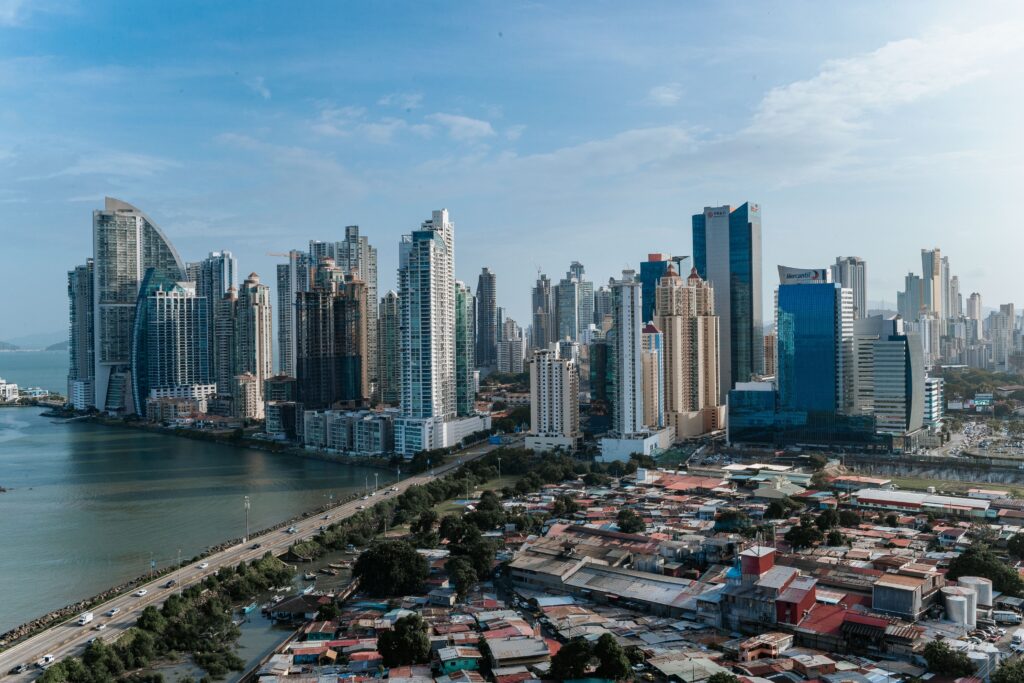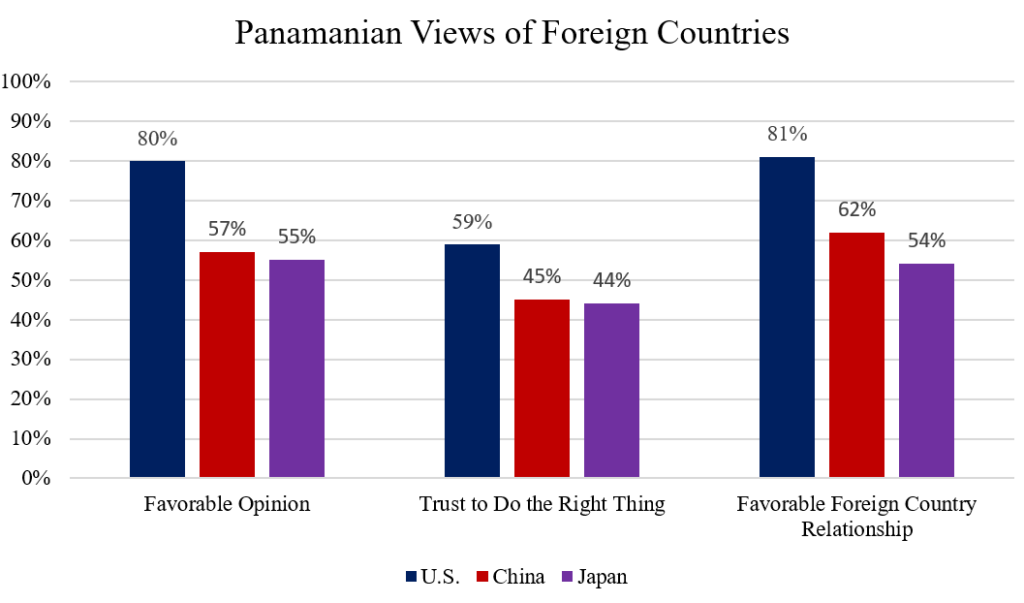By Victoria Smith, Researcher 2

Panama City, Panama
Last Friday, September 29, marked the one-year anniversary of Ambassador Mari Carmen Aponte’s confirmation to serve as the United States’ premier diplomat in Panama. Prior to her confirmation, the United States did not have an ambassador to Panama since Amb. John Feeley resigned in early 2018. The gap between U.S. ambassadors came at a pivotal moment for Panamanian foreign relations: just the year before, then-President Juan Carlos Varela officially switched diplomatic relations from the Republic of China in Taipei to the People’s Republic of China in Beijing1. Since then, China has increased its presence by taking advantage of economic opportunities in the country, now competing with Japan as the second-largest user of the Panama Canal after the United States2. In the midst of this shifting geopolitical landscape, ORB conducted a wave of research in June of this year to better understand how Panamanians feel about the direction of their country’s relations with foreign powers.
China Gaining Ground
While data gathered in June of 2023 shows that Panamanians have more favorable feelings for the United States (80%) over China (57%), Chinese economic power challenges the United States’ historical hegemony in the region as Beijing has undertaken highly visible infrastructure projects throughout the country. Qualitative interviews reveal that some Panamanians embrace China’s challenge to U.S. influence. One focus group discussion participant from Panama City noted: “The Americans had us under their control for three governments, thinking they had everything secured in their backyard. When the Chinese arrived, they brought healthy competition.” This notion is backed up by quantitative data, which shows over half (58%) of Panamanians believe the U.S. feels entitled to Panama as a foreign partner.
Figure 1
Yet, any warm feelings Panamanians may have towards China over the U.S. appear to be based almost solely on the economic, infrastructural, and technological benefits China offers. Panamanians remain wary of China’s politics and feel culturally more aligned with the United States: more than half of respondents (57%) said the U.S. is a natural ally to Panama due to cultural similarities, compared to less than a third saying the same of China (29%).
Other Foreign Influences
However, China is not the only Asian economic power to gain influence in Panama. Quantitative data shows that Panamanians value Japan nearly to the same extent as they do China; there is less than a 10-percentage point difference in Panamanian opinions of their country’s relationship with either of the East Asian powers. Favorable opinions of both countries are virtually the same.
Figure 2
Qualitative research also shows that Panamanians value economic relations with Japan and South Korea for the very reasons that China outcompetes the United States in Panama: infrastructure and technology. When asked to list projects by foreign countries, focus group participants frequently referenced construction of a new metro line involving Japanese and South Korea funds, and a South Korean natural gas plant. Discussions also pointed to Panamanians having more positive beliefs about Japanese and South Korean culture and society than China, which suffered from negative perceptions regarding communism and authoritarianism.

U.S.-Japan-South Korea Trilateral Summit; Photo by 首相官邸ホームページ under CC BY 4.0 license
The Balancing Act
Though U.S. engagement with Panama in recent years has not been as strong as it once was, the U.S. maintains its favorable position in the country. Continued diplomatic efforts could help to retake some of the ground lost during the years of the ambassadorial gap.
Similarly, strengthened relationships with South Korea and Japan could prove effective in combating Chinese influence in the country and region. President Biden has already made a step in this direction with the recent trilateral summit between the U.S., South Korea, and Japan3. Inversely, as the U.S. pursues Indo-Pacific security, it would do well to consider the possibilities of increased engagement with Seoul and Tokyo via Latin America, as well. This trilateral partnership could prove an effective tool in undermining Chinese influence globally.
_____________________________________
1 Panama Cuts Ties with Taiwan in Favour of China, BBC
2 Panama Canal: Japan now No. 2 User as US-China Trade Suffers, AP News
3 Japan, South Korea, U.S. Strengthen Trilateral Cooperation, U.S. Department of Defense


